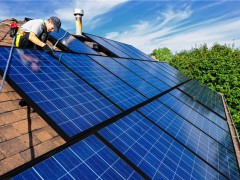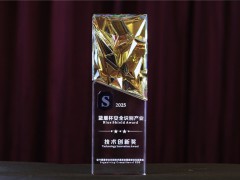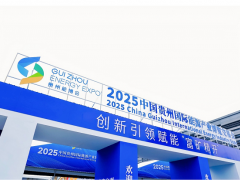據(jù)安迅思新加坡8月4日消息,越南為遏制新冠病毒德爾塔變種病例激增而實(shí)施的最新行動限制令越南石化市場受到嚴(yán)重影響。
越南聚乙烯(PE)行業(yè)的市場參與者表示,由于嚴(yán)格的管控措施,他們面臨嚴(yán)重的需求疲軟。
越南許多PE下游工廠的經(jīng)營者被要求為他們的工人提供食物和住宿,這樣他們就可以呆在工廠里,而不會與更大的人口混雜在一起。不愿意或不能這樣做的工廠將不得不關(guān)閉。
越南的一名PE市場消息人士表示:“由于新冠疫情封鎖,本周幾乎停止了所有業(yè)務(wù),大部分客戶也都這樣做了。由于需求低迷,我們從這周開始銷量下降,工廠停產(chǎn)或減產(chǎn),我們也無法將貨物從港口/倉庫運(yùn)送到客戶的工廠,因?yàn)檎孤眯小!?/p>
盡管如此,越南PE價格上周仍大幅上漲,因?yàn)橐恍┊?dāng)?shù)貛齑嫔填A(yù)計,一旦當(dāng)前措施放松,需求將會復(fù)蘇,開始補(bǔ)充庫存。
在PE管材級市場,下游PE管道加工商們表示,他們面臨著運(yùn)營工廠的人力有限,封鎖限制也影響了下游管道工程。
在苯乙烯類樹脂市場,自7月底以來,越南終端用戶或經(jīng)銷商對苯乙烯類樹脂(包括CFR進(jìn)口樹脂和本地交付樹脂)的需求有所減弱,由于無法滿足政府的更嚴(yán)格的活動限制,一些原始設(shè)備制造商決定關(guān)閉或以更低的開工率水平運(yùn)營,當(dāng)?shù)厥袌龅南掠紊a(chǎn)放緩。
源產(chǎn)越南的苯乙烯類(如發(fā)泡聚苯乙烯(EPS)和通用聚苯乙烯(GPPS))的賣家一直試圖參與出口談判,以限制未來潛在的庫存壓力,因?yàn)榛顒酉拗瓶赡軙掷m(xù)到8月底。
考慮到其他一些石化工廠已經(jīng)意外關(guān)閉,越南苯乙烯類裝置短期關(guān)閉的可能性尚未排除。
一位地區(qū)貿(mào)易商表示:“所有人都在努力確保手頭沒有太多庫存,無論是原料還是樹脂。”
與此同時,越南下游鞋類制造商對乙烯-醋酸乙烯共聚物(EVA)樹脂的購買勢頭喜憂參半。
其中一些加工商能夠繞過長期封鎖,通過設(shè)置臨時的現(xiàn)場住房設(shè)施,如帳篷和為留在現(xiàn)場的工人提供食物,實(shí)現(xiàn)低開工率水平的生產(chǎn)。但由于衛(wèi)生和物流方面的挑戰(zhàn),它們的原料采購是根據(jù)需要進(jìn)行的。其他規(guī)模較小的加工商仍處于關(guān)閉狀態(tài)。
由于制成品出口訂單活躍,越南OEM鞋類制造商對EVA樹脂的購買勢頭相對較為穩(wěn)定,不過尚不清楚工廠何時能全面恢復(fù)生產(chǎn)。
張春曉 摘譯自 ICIS
原文如下:
Vietnam petchems weighed by new restrictions as COVID-19 cases surge
Vietnam’s petrochemical markets are being weighed heavily by the latest movement curbs imposed to stem the surge in new cases of the Delta variant of the coronavirus.
The number of COVID-19 infections in the country has surged since late April this year and has forced authorities to impose movement restrictions, especially in Ho Chi Minh City, which accounts for more than 60% of the country's total infections.
Vietnam’s health ministry on Tuesday reported 8,429 new COVID-19 infections, bringing the country’s total caseload to 170,190.
The country’s COVID-19 death toll was at 2,071 on Tuesday, the health ministry said. The vast majority of the deaths were recorded in the past month.
Market players in Vietnam’s polyethylene (PE) industry said they were facing severe demand weakness because of the tough restrictions.
Many downstream factory operators have been instructed to provide food and lodging for their workers so that they stay within factory premises and do not mingle with the larger population.
Factories which are unwilling or unable to do so will have to shut.
“We almost stopped all business this week because of the COVID-19 lockdown, and most of our customers have done the same,” said a market source in Vietnam.
“We don’t sell so much from this week because of low demand, factories have stopped production or reduced production rates, and also we can’t deliver cargo from port/warehouse to customer’s factory because the government has banned travel.”
Despite that, PE prices in Vietnam gained sharply last week as some local stockists moved to replenish inventories in anticipation of a resurgence in demand as soon as current measures are eased.
In the PE pipe grade market, downstream PE pipe converters said that they are facing limited manpower to operate plants, and lockdown restrictions have also affected downstream piping works.
In the styrenics market, the demand for resins - both on a CFR import and local delivered basis - from Vietnam end-users or distributors weakened since end-July, as downstream offtake in the local market slowed down with some OEMs deciding to shut down or run at much lower rates since they are unable to meet the tighter movement restrictions by the government.
Sellers for Vietnam-origin styrenics such as expandable polystyrene (EPS) and general purpose polystyrene (GPPS) have been trying to engage in export discussions instead to limit potential inventory pressures going forward, since movement restrictions may remain in place until end-August.
Potential short-term shutdowns of the styrenics units in Vietnam have not been ruled out, given that some other petrochemical units have already been shut unexpectedly.
This in turn could weigh on overall SM offtake for both August and early September from the region.
“Everyone is trying to make sure they don’t have too much inventories on hand, be it feedstock or resins,” one regional trader said.
Meanwhile, the buying momentum of ethylene vinyl acetate (EVA) resins from downstream footwear manufacturers in Vietnam was mixed.
Some of these converters were able to work around extended lockdowns to enable a low level of production by setting up temporary on-site housing facilities such as tentages and providing food for workers to remain on-site.
But with hygiene and logistics challenges, their feedstock procurement has been done on a need-to basis. Other smaller-scale converters have remained shut.The buying momentum of EVA resins from OEM footwear manufacturers in Vietnam was comparatively more stable due to buoyant export orders for finished goods, although it remained unclear when factories can fully resume production.
免責(zé)聲明:本網(wǎng)轉(zhuǎn)載自其它媒體的文章,目的在于弘揚(yáng)石化精神,傳遞更多石化信息,并不代表本網(wǎng)贊同其觀點(diǎn)和對其真實(shí)性負(fù)責(zé),在此我們謹(jǐn)向原作者和原媒體致以敬意。如果您認(rèn)為本站文章侵犯了您的版權(quán),請與我們聯(lián)系,我們將第一時間刪除。







